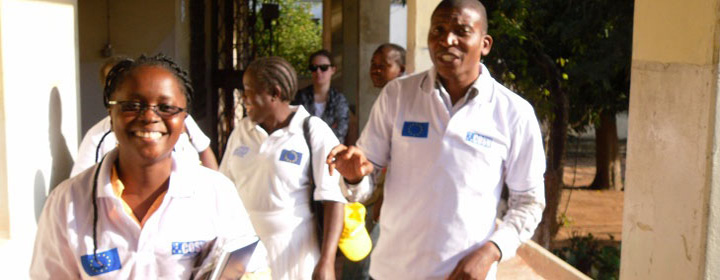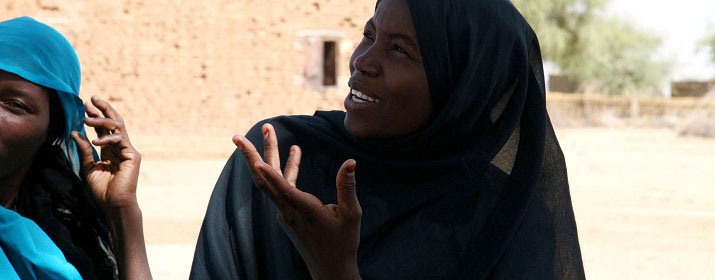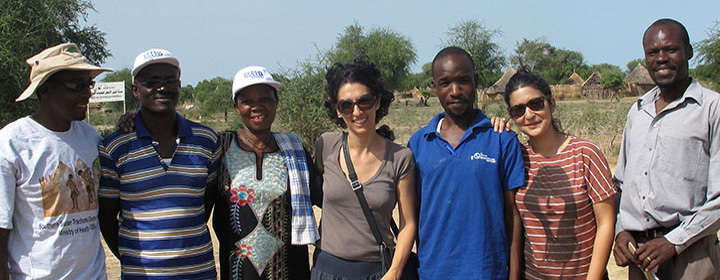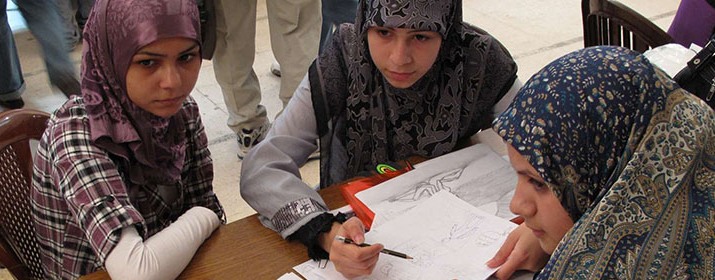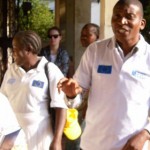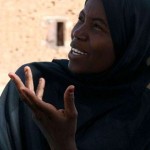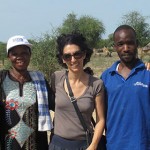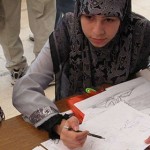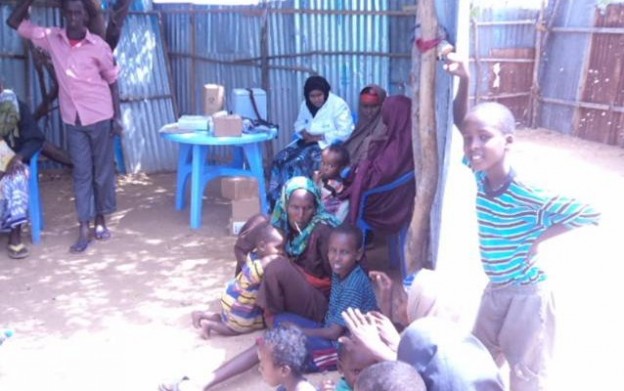Khadija Abdi Yarow was 32 years old and worked for COSV as responsible for teaching in the five temporary elementary schools that COSV supports in Mogadishu IDP camps in Zone K; the camps are vast crowded mass of shacks, huts and shelters made with towels and fabrics.
In a country where only 15% of children attend school, and in which the impact of war on the school system has been devastating, Khadija was convinced that one of the great ways to solve the many conflicts that still afflict his people, exhausted by years of war and violence is to start from the young and the responsibility towards the new generations.
A belief that has been reflected in the project she was responsible for, that of temporary schools, strongly backed by COSV to support the crucial sector of primary education, which in Somalia suffers from a chronic lack of funding or discontinuity.
And last Saturday, Khadija was a victim of that violence that continues to disfigure the streets of Mogadishu with impunity.
Kadija was traveling by car with her colleagues to visit the 2200 pupils who attend temporary schools, when a gunfight broke out. Close to death, Khadija was admitted to one of the few hospitals in Somalia that offers emergency surgery, but she did not make it.
In the context of already serious humanitarian emergency, hospital facilities that continue to operate in a partial way are unfortunately limited. In the absence of funding from the international community, hospitals manage to provide basic daily services to the local population only through voluntary contributions from the local community and Somalis diaspora. But the extreme shortage of financial and human resources in which they are forced to work, make it even more difficult to carry on with the activities.
THE PROJECT KHADIJA WAS WORKING ON
The project Khadija was responsible for involves 5 temporary schools, set up inside the 5 refugee camps Madag, Mabda, Maryama, Hersi Ruug and Kabka in Zone K of Mogadishu. There are 2,210 children attending these schools, children deprived of their right to education.
The project includes several components in order to take care of the whole life of children in the camps: from activity in class to psychosocial interventions, from moments of recreation to peace building path. The kids are also involved in activities to acquire knowledge and skills related to various aspects of daily life in terms of health, personal hygiene and risk behaviors.
The camp schools are provided with educational materials and free nutritious food for students, whereas the headmasters and teachers receive salary incentives and pedagogical training to ensure the highest quality education. To ensure a healthy environment, school facilities are provided with bathrooms, separate for males and females, and all students can benefit from free health screenings, provided by 5 mobile clinics run by COSV in the area K of Mogadishu.
To promote the inclusion of girls in schools, there are information campaigns with the communities of the camps.
SOMALIA THESE DAYS
The continuing conflict and natural disasters were among the main causes of almost two decades of chronic emergency in Somalia, and the repercussions were felt on the functioning of the education system: only 30% of school-age children were enrolled in primary schools. In southern and central Somalia, the most afflicted areas, school enrollment rate drops to 22%. Besides, in 2012 with renewed conflict and internal displacement of the population, school drop-outs has worsened.
A report by the Education cluster shows a dropout of 78% among children and young Somalis aged between 5 and 17 years (out of a total of 2.3 million). The causes are primarily ascribed to the state of perpetual insecurity and population displacement: UNHCR has registered an increase of 12,000 displaced persons from April and of particular concern is the situation in K area, home to over 120,000 internally displaced persons. The number of people arriving in the area K is increasing, and it is mainly constituted by women and children.
In the refugee camps, lives of children is particularly exposed to risks: far away from the family circle of protection, are at risk of sexual abuse, exploitation and recruitment into armed forces. All the world of childhood is destroyed, without access to education and no appropriate opportunities, children are forced to grow up and face responsibilities and tasks of adults.
The current movement of displaced persons from Kismayo further impacts on the educational system of Mogadishu: it is not possible to accommodate all the children and the risk of leaving school grows further. And in the absence of a governmental service, the responsibility for basic education of children lies with the community. But the humanitarian crisis has pulled to the limit the cooperative support system of the camps communities, greatly reducing the ability to offer assistance.
Another generation of children deprived of education – the foundation not only of the individual livelihood, but also of the sense of collective citizenship and of future leaders – will leave Mogadishu and Somalia without a sustainable path toward peace.

